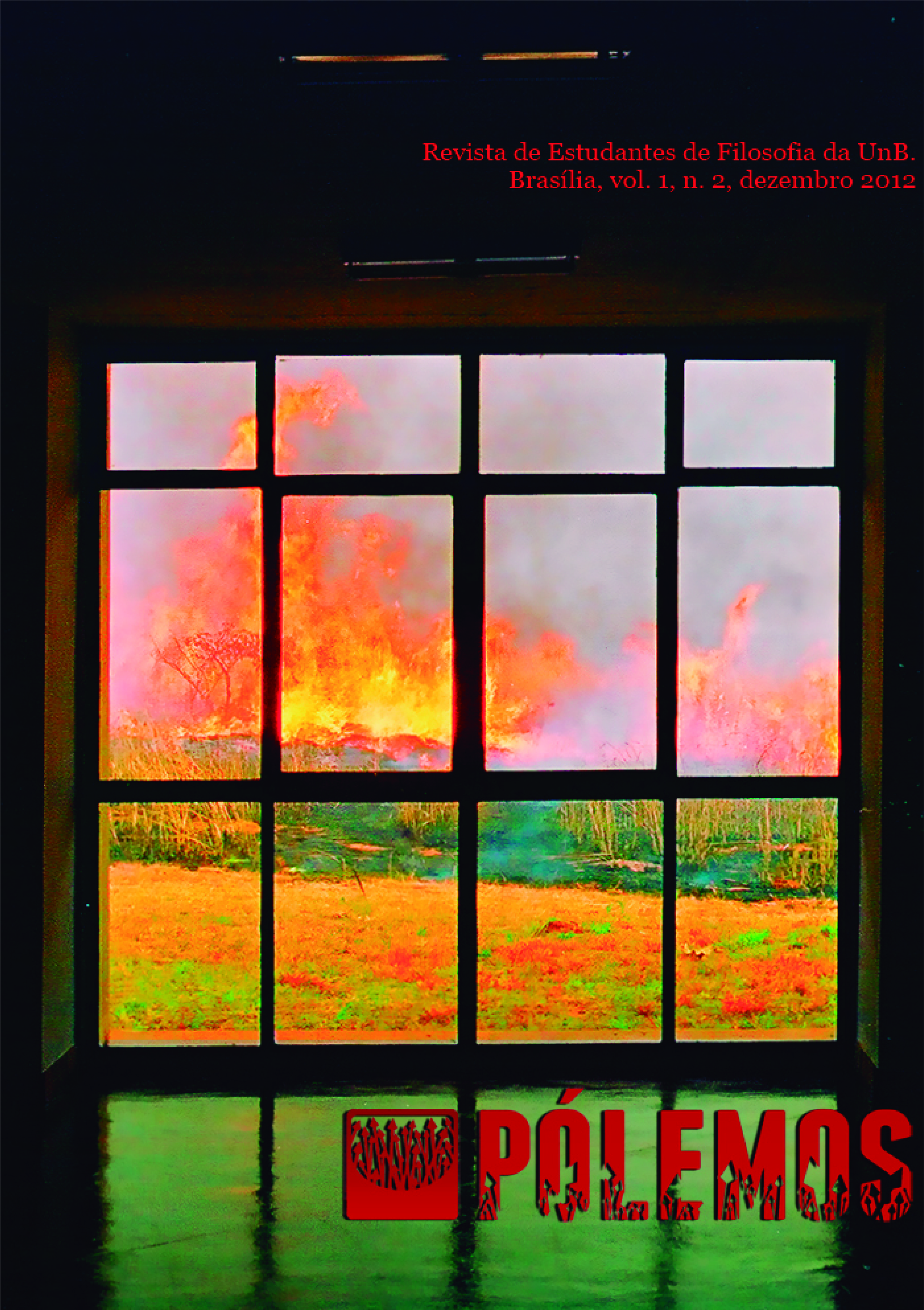A EQUIVALÊNCIA ENTRE MASSA E ENERGIA
DOI:
https://doi.org/10.26512/pl.v1i2.11539Palabras clave:
Filosofia da física. Teoria da Relatividade restrita. Filosofia da Ciência.Resumen
Tradução de artigo do Professor Francisco Fernflores no SEP (Stanford Encyclopedia of Philosophy)
Descargas
Referencias
Baierlein, R. (2007), “Does nature convert mass into energy?” Am. J. Phys., 75(4): 320”“325.
Bondi, H. &C.B.Spurgin (1987), “Energy has mass,” Phys. Bull., 38: 62”“63.
Cockcroft,J. D. &E. T. Walton (1932), “Experiments with high velocity positive ions (II)”“The disintegration of elements by high velocity protons,” Proc. Roy. Soc. London, A137: 229”“242.
Eddington, A. (1929), Space, Time, and Gravitation, London: Cambridge University Press, publicado originalmente em1920.
Ehlers, J., W. Rindler, &R. Penrose (1965), “Energy conservation as the basis of relativistic mechanics II,” Am. J. Phys., 35: 995”“997.
Einstein, A. (1905a), “On the electrodynamics of moving bodies,” in A. Einstein et al.(1952), pp. 35”“65.Tradução para o português: “Sobre a eletrodinâmica dos corpos em movimento”, in Stachel (2001), pp. 143”“182.
”“”“”“. (1905b), “Does the inertia of a body depend upon its energy content?” in A. Einstein et al.(1952), pp. 69”“71.Tradução para o português: “A inércia de um corpo depende de seu conteúdo de energia?”, in Stachel (2001), pp. 183”“186.
”“”“”“. (1919), “What is the theory of relativity?” in A. Einstein (1982), pp. 227”“232.
”“”“”“. (1935), “Elementary derivation of the equivalence of mass and energy,” Am. Math. Soc. Bul., 41: 223”“230.
”“”“”“. (1982), Ideas and Opinions, New York: Crown Publishers Inc.
Einstein, A., H.A. Lorentz, H. Minkowski &H. Weyl (1952), The Principle of Relativity, trad. W. Perrett &G.B. Jeffery, New York: Dover.Orig. 1917. Tradução para o português: O Princípio da Relatividade, trad. M.J. Saraiva, Lisboa: Gulbenkian, 1983.
Einstein, A. &L. Infeld (1938), The Evolution of Physics, New York: Simon and Schuster.Tradução para o português: A Evolução da Física, trad. G. Rebuá, Rio de Janeiro, Zahar, 1962.
Feigenbaum, M.J. & D. Mermin (1988), “E=mc2,” Am. J. Phys., 56: 18-21. Republicado em Mermin, D.,Boojums All the Way Through, New York:CambridgeUniversity Press, pp. 266-80.
Flores, F. (1998), “Einstein”Ÿs 1935 derivation of E=mc2,” Stud. Hist. Phil. Mod. Phys., 29(2): 223”“243.
”“”“”“. (1999), “Einstein”Ÿs theory of theories and types of theoretical Explanation,” International Studies in the Philosophy of Science, 13(2): 123”“134
”“”“”“. (2005), “Interpretations of Einstein”Ÿs equation E=mc2,” International Studies in the Philosophy of Science, 19(3): 245”“260.
Fox, J. G. (1965), “Evidence against emission theories,” Am. J. Phys., 33(1): 1”“17.
Jammer, M. (1961), Concepts of Mass in Classical and Modern Physics, Cambridge, MA: Harvard University Press.
Lange, M. (2001), “The most famous equation,” Journal of Philosophy, 98: 219”“238.
”“”“”“. (2002), An Introduction to the Philosophy of Physics, Oxford: Blackwell.
Langevin, P. (1913), “L”Ÿinertie de l”Ÿénergie et ses conséquences”, Journal dePhysique Théorique et Appliqueé (series 4), 3: 553-591.
Minkowski, H. (1908), “Space and time” in A. Einstein et al. (1952), pp. 75”“91.
Perrin, F. (1932), La Dynamique Relativiste et l’Inertie de l’Energie. (ColeçãoActualities Scientifiques et Industrielles, 41, 19 pgs.), Paris: Hermann.
Rainville, S. et al. (2005), “A direct test of E=mc2,” Nature, 438: 1096”“1097.
Rindler, W. (1977), Essential Relativity, New York, N.Y.: Springer-Verlag.
Stachel, J. (org.) (2001), O Ano Miraculoso de Einstein, trad. A.C. Tort, Rio de Janeiro: Editora UFRJ.
Stachel, J. &R. Torretti (1982), “Einstein”Ÿs first derivation of mass-energy Equivalence,” Am. J. Phys., 50(8): 760”“761.
Stuewer, R.H. (1993), “Mass-energy and the neutron in the early thirties,” Sci. Context, 6: 195”“238.
Taylor, E.F. &J.A. Wheeler (1992), Spacetime Physics, San Francisco: W. H. Freeman.
Torretti, R. (1996), Relativity and Geometry, New York: Dover.
Zahar, E. (1989), Einstein’s Revolution: A Study in Heuristic, La Salle: Open Court.
Descargas
Publicado
Número
Sección
Licencia
Derechos de autor 2016 Pólemos

Esta obra está bajo una licencia internacional Creative Commons Atribución-NoComercial-SinDerivadas 4.0.
Todos os trabalhos que forem aceitos para publicação, após o devido processo avaliativo, serão publicados sob uma licença Creative Commons, na modalidade Attribution-NonCommercial-NoDerivatives 4.0 International Public License (CC BY-NC-ND 4.0). Esta licença permite que qualquer pessoa copie e distribua a obra total e derivadas criadas a partir dela, desde que seja dado crédito (atribuição) ao autor / Ã autora / aos autores / às autoras.


